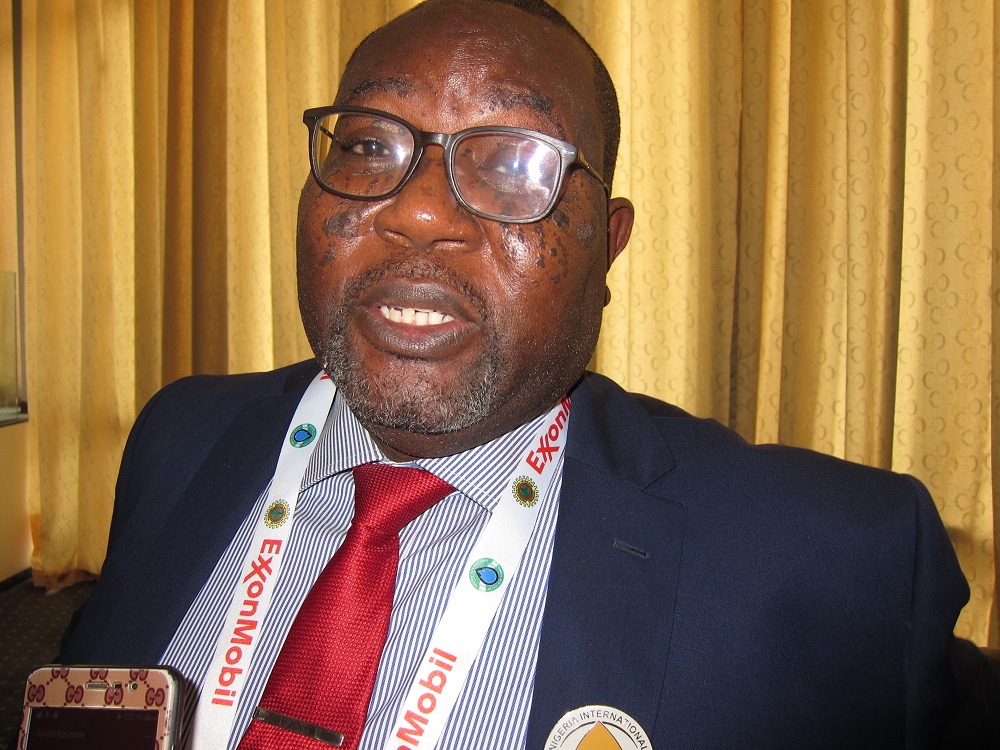Mr. Adetunji Oyebanji, MD, 11Plc
Nigeria’s downstream sector has been enmeshed with controversy over regulation and subsidy by the government. Many operators are of the view that the only way out to resolve the issue is to completely deregulate and remove subsidy because it does more harm than good for the country.
Speaking recently at the sideline of the Nigerian International Petroleum Summit (NIPS), the Managing Director of 11Plc with over 30 years of experience in the sector, Mr. Adetunji Oyebanji spoke with OGODO DOUGLAS FELIX, Editor of Energy Focus Report Magazine that there is need for investment in order to achieve adequate margins.
On proliferation of lubricants in the industry, government should put a control and regulate manufacturers so that low quality products will not be sold to the public.
He advocated that government should support the private sector for the industry to grow and expand. While the Nigerian National Petroleum Corporation (NNPC) has to be run and managed like a private sector.
Oyebanji avouched that subsidy hinders the country from providing social amenities to its growing population and this will not augur well for its economy hence it should be removed and the downstream deregulated.
Excerpts:
We have seen some demonstration about the Dangote refinery at NIPS and hope was also given that in the downstream sector there will be improvement compared to what it has been before what’s your take about this?
Well, there will be improvement because more products will be available and that is how it supposed to work. Just as I have said during one of the sessions that there is also need for a lot of investment in the whole value chain such as pipeline distribution. The trucks that move products require investment because if you have a big tank but small pipeline, it will become difficult to move what you produce in the tank.
Is 11Plc doing anything pertaining to refinery and improving distribution of petroleum products?
The refinery that we have if all of them come onstream they will meet our immediate requirement. So, refining in the near future should not be a problem. The problem will be distribution and how people can make decent returns from their investment so that more investment could go into all aspects of the downstream.
On the issue of challenges, do you see those challenges being addressed now compared to how they were before?
Generally, you saw the Managing Director of Total talked about safety and so much investments are needed to ensure that products are sold safely. Enormous investment is needed to ensure that product is sold, transported and stored safely. If you don’t have adequate margin those investment will not be made at a level that is required. There is a lot that still needs to be done without adequate margins it cannot be achieved.
Proliferation of lubricants in the downstream, what do you think should be done?
It has to do with adulteration without control because anyone can manufacture lubricant and what we need is for the government to ensure that only people who are serious investors in that area are allowed to produce. This will prevent bad quality products to be sold to the public.
What is your advice for the downstream sector of the country to improve?
My advice is that the country should deregulate the sector while government focuses on what the Department of Petroleum Resources (DPR) is doing on standard, regulation and safety. They should support the private sector to grow, develop and invest so that the industry can expand. There are signals showing that the NNPC seems to be the vehicle that government wants to use to carry out its activities, if it wants NNPC, then it should be allowed to be run and managed on purely commercial basis not as a cross between a social welfare institution and a commercial enterprise. A choice has to be made on which way it should be.
On the aspect of fuel subsidy which has been in existence in the country’s downstream through successive governments. What is the way forward?
I have emphasized on it before that our population is growing which means demand for fuel will grow as well. If you are subsidising the amount of your resources, you will be spending to subsidise more. Do you want hospitals, education, roads or you want cheap fuel? You have to decide because if your population becomes 400 million all the money you have been using to subsidise the fuel is the money that could have been used for social infrastructures.


Comment here